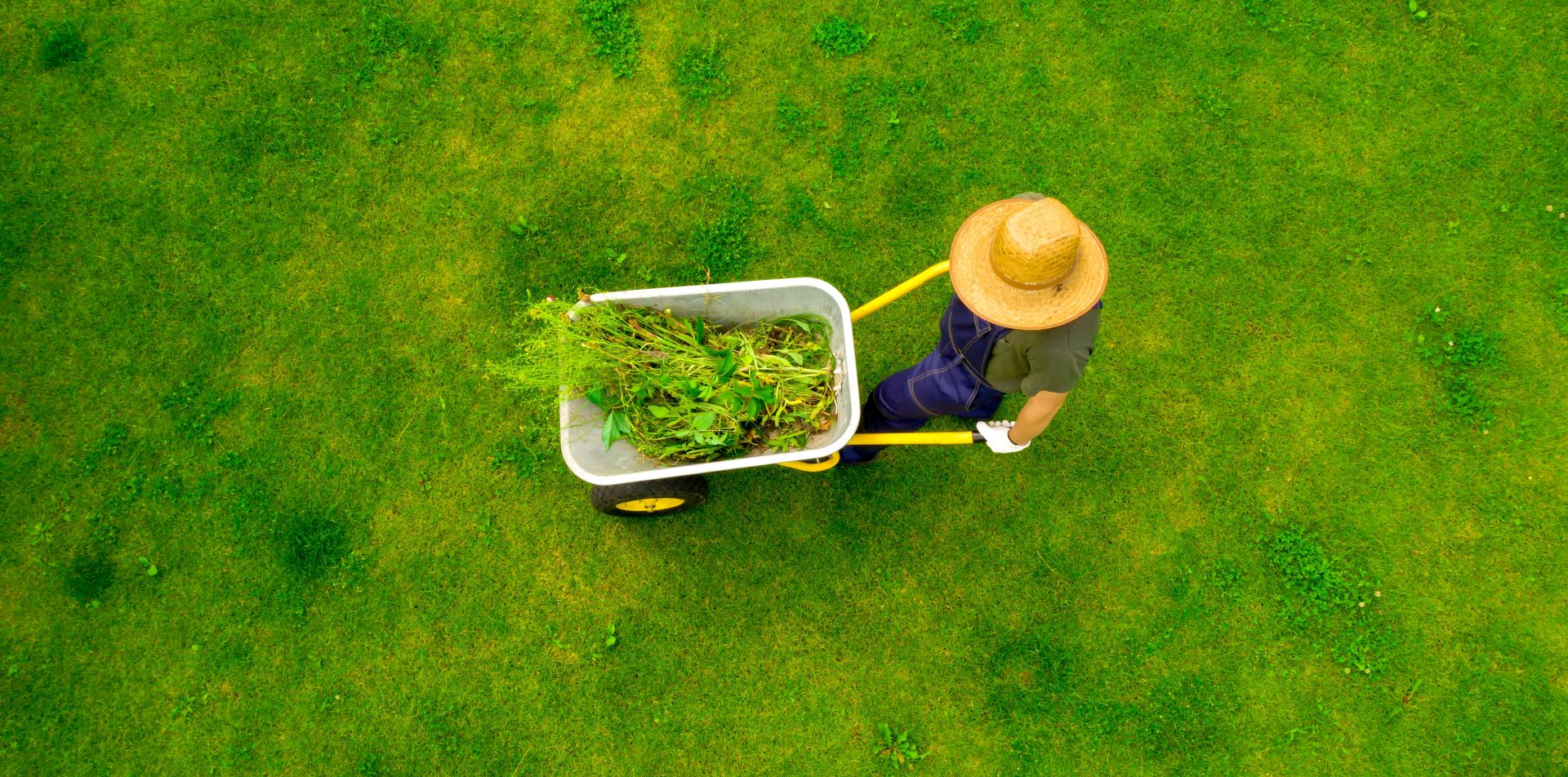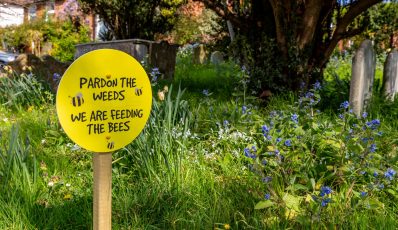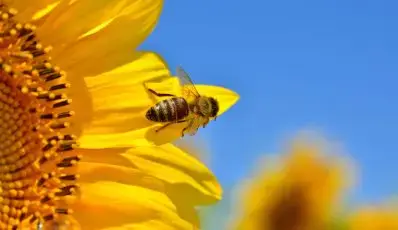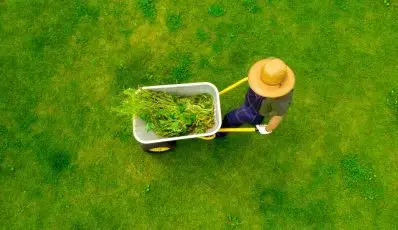One of the questions that garden owners often ask themselves is: "What to do with the grass clippings?" Instead of treating cut grass as waste, we can use it creatively and ecologically, which benefits our garden and the environment. From composting to making mulch and even using grass for DIY projects, here's a guide to help you turn regular lawn mowing into an eco-friendly activity that adds value to gardening.

One of the questions that garden owners often ask themselves is: “What to do with the grass clippings?” Instead of treating cut grass as waste, we can use it creatively and ecologically, which benefits our garden and the environment. From composting to making mulch and even using grass for DIY projects, here’s a guide to help you turn regular lawn mowing into an eco-friendly activity that adds value to gardening.
Why is it worth recycling mown grass?
The use of grass clippings goes beyond simply reducing garden waste; it is a step towards ecological gardening and sustainable resource management. Often perceived as unnecessary waste, grass clippings are actually a valuable resource that can nourish the soil, support the garden’s ecosystem, and serve as material for creative projects.
First, the grass is rich in nitrogen, which is a key ingredient of compost. Composting grass turns it into a valuable fertilizer that improves the structure and fertility of the soil, which in turn contributes to better plant growth. Additionally, using grass as mulch can help preserve soil moisture, reduce weed growth, and protect plant roots from extreme weather conditions.
Apart from the gardening aspects, recycling grass also has a positive impact on the environment. It reduces the need for commercial fertilizers and pesticides, which benefits local wildlife, and reduces greenhouse gas emissions from the decomposition of organic waste in landfills.
Using mowed grass is therefore not only a way to reduce waste, but also to enrich the garden and support the ecosystem, creating a healthier and more sustainable environment for future generations.
Grass composting
Grass composting is a simple and effective way to turn garden waste into nutrient-rich compost. This process not only reduces the amount of waste going to landfills but also provides valuable fertilizer that can significantly improve the quality of your garden’s soil.
The key to effective grass composting lies in maintaining the right balance between “green” materials, such as freshly cut grass, rich in nitrogen, and “brown” materials, rich in carbon, such as dry leaves, branches or even paper. The ideal proportions are approximately equal amounts of both types of materials. This mixture provides the right balance of nutrients and promotes rapid decomposition.
It is also important to turn the compost regularly, which ensures access to oxygen and speeds up the decomposition process. Excess moisture or lack of ventilation can lead to rot and unpleasant odors, so you should pay attention to these aspects.
The ready compost, which is dark, crumbled, and has a pleasant earthy smell, can be used as a natural fertilizer, excellent for enriching the soil and supporting healthy plant growth. Composting grass is therefore not only beneficial for the environment but also makes a valuable contribution to garden care.
Grass mulching
Grass mulching is another effective way to use grass clippings, which benefits both your garden and the environment. Grass mulch provides a natural protective barrier for the soil, preventing erosion, conserving moisture, and regulating soil temperature, which is especially important in extreme weather conditions.
The process of creating grass mulch is relatively simple. Freshly cut grass should be spread evenly around plants and trees, creating a thin layer that does not exceed a few centimeters in thickness. It is important not to create a layer that is too thick, as this may lead to excessive moisture retention and lack of air access to the roots, which in turn may promote the development of diseases.
Grass mulching also prevents weed growth, which reduces the need for frequent weeding and herbicide applications. Additionally, decomposing grass gradually releases nutrients into the soil, acting as a natural fertilizer.
It is worth noting that mulching with grass is particularly beneficial in organic farming because it is a completely natural method and does not require using chemical additives. Therefore, it is a great choice for gardeners who want to keep their gardens eco-friendly.
Other creative uses for grass clippings
Grass clippings offer many creative uses that go beyond typical gardening practices.
One idea is to use grass to create garden decorations. You can use it to weave wreaths, create natural mats or use it as a decorative element in flower arrangements. These natural decorations bring a touch of greenery and rustic charm to any space.
Cut grass can also be used as ecological bedding for pets, such as rabbits or rodents. It is soft, absorbs odors, and is safe for animals, which makes it an excellent alternative to commercial products.
Moreover, grass can be used to create handmade paper or other handicraft items. The possibilities are almost endless, and using grass adds a unique, natural element to any design.
Using grass clippings in these creative ways not only reduces waste, but also promotes a sustainable approach to resources, inspiring the exploration of new, ecological methods of using what nature offers us.
-
Trimmer Mower – Petrol – 3 kW – 600 mm cutting width 619.00 €
-
Trimmer Mower – Petrol – 3 kW – 580 mm cutting width self-propelled
-
Lawn Mower Trimmer – petrol – 3.7 kW / 5 HP – 560 mm cutting width
-
Petrol lawn mower – 2.6 kW / 146 cm³ – cutting width 457 mm – self-propelled
719.00 €599.00 € -
Grass trimmer – 8700 rpm – 2.1 kW – Steel blade / Nylon cutter
249.00 €219.00 €
Common mistakes when recycling grass clippings
Grass clippings can be a goldmine for your lawn, but a few mistakes can stop them from working their magic. Here’s how to avoid them and reap the benefits:
- A layer of grass that’s too thick – applying a thick layer of grass clippings, especially when mulching, can lead to problems such as lack of airflow, too much humidity, and the development of diseases. To avoid this, spread the grass evenly and in small amounts.
- Compost Imbalance – Composting requires the right balance between nitrogen-rich (green) and carbon-rich (brown) materials. Too much grass compared to other materials can create an unpleasant odor and slow down the composting process. That’s why it’s important to add a variety of ingredients to your compost.
- Using grass with chemicals – Grass treated with chemicals such as herbicides or pesticides can be harmful to the soil and plants when used as mulch or compost. To avoid this, it is best to use organically mown grass.
Avoiding these mistakes will help you use your grass clippings efficiently, bringing maximum benefits to your garden and the environment.
Mowed grass can become a valuable resource for your garden and the environment. From composting and mulching to creative DIY projects, the possibilities for using grass clippings are endless. We encourage you to experiment with these methods not only to reduce waste, but also to enrich your garden and contribute to protecting the environment. Start your adventure with ecological gardening today!






Share